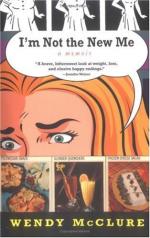“You don’t imagine,” said Dupre, with a touch of pallor coming into his cheeks, “that this is anything serious? It will mean nothing more than a day or two in prison, at the worst?”
The manager shook his head and said:
“We had better get a carriage and see the President as soon as possible. I’ll undertake to send Lemoine back to Paris, or to put him on board one of the French iron-clads. But there is no time to be lost. We can probably get a carriage in the square.”
They found a carriage, and drove as quickly as they could to the residence of the President. At first they were refused admittance; but finally they were allowed to wait in a small room while their message was taken to Balmaceda. An hour passed, but still no invitation came to them from the President. The manager sat silent in a corner, but Dupre paced up and down the small room, torn with anxiety about his friend. At last an officer entered the room, and presented them with the compliments of the President, who regretted that it was impossible for him to see them that night. He added for their information, by order of the President, that Lemoine was to be shot at day-break. He had been tried by court-martial, and condemned to death for sedition. The President regretted having kept them waiting so long, but the court-martial had been going on when they arrived, and the President thought that perhaps they would be interested in the verdict. With that the officer escorted the two dumfounded men to the door, where they got into their carriage without a word. The moment they were out of ear-shot, the manager said to the coachman:
“Drive as quickly as you can to the residence of the French minister.”
Every one at the French Legation had retired when the two panic-stricken men reached there; but after a time the secretary consented to see them, and on learning the seriousness of the case, he undertook to arouse his Excellency, and see if anything could be done. The minister entered the room shortly after, and listened with interest to what they had to say.
“You have your carriage at the door?” he asked, when they had finished their recital.
“Yes.”
“Then I will take it, and see the President at once. Perhaps you will wait here until I return.”
Another hour dragged its slow length along, and they were well into the second hour before the rattle of the wheels was heard in the silent street. The minister came in, and the two anxious men saw by his face that he had failed in his mission.
“I am sorry to say,” said his Excellency, “that I have been unable even to get the execution postponed. I did not understand, when I undertook the mission, that M. Lemoine was a citizen of Chili. You see, that fact puts the matter entirely out of my hands. I am powerless. I could only advise the President not to carry out his intentions; but he is to-night in a most unreasonable and excited




